Three 500-calorie meals and a 200-calorie snack - but what does a jockey eat?
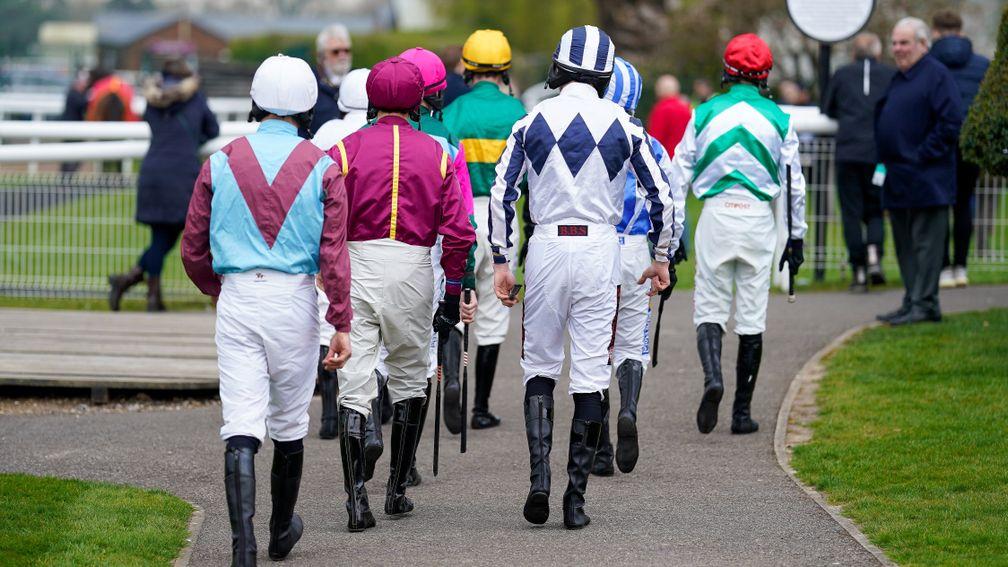
From heavyweight boxers to lightweight jockeys, elite athletes come in all shapes and sizes.
Boxers and jockeys might be poles apart physically in many cases but they share a rare common bond – having to make weight before going out to perform. Yet there is one crucial difference.
Whereas a boxer might have to hit a certain weight four times a year, the battle against the scales occurs every single day for jockeys.
It is often noted that racing is the only sport where the athletes are trailed by an ambulance and in a similar vein racing is unique in that its participants have been known to perform hungry and dehydrated.
A diet of fresh air – and worse?
Food and water is fuel for the body. For many years, though, those essentials have been seen as enemy number one to jockeys under pressure to meet weight requirements that defy physiology.
It has led to a jockey's life consisting of a diet of fresh air and not much else, with plenty of sweating on top.
In 2010, legendary jump jockey Tony McCoy lifted the lid on his punishing diet and went as far as saying that eating 12 grapes felt "like an act of rebellion".
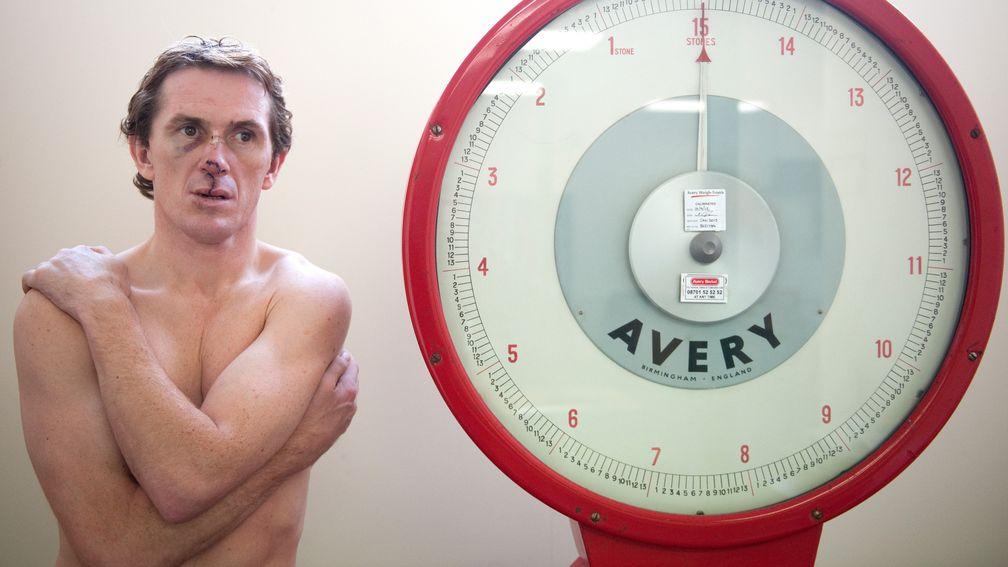
McCoy would often get by on sugary tea for breakfast and two jelly babies for lunch before an evening meal, usually consisting of fish and steamed veg, with a dollop of mayonnaise his guilty pleasure. He would go to bed hungry three nights a week.
Jockeys have been known to use rapid weight-loss techniques to make weight, such as self-induced vomiting, or flipping as it is known in the trade, and diuretics, also called water pills. They sound extreme but unfortunately they are much more common than you might think, particularly in America where designated cubicles in the jockeys' room containing a 'heaving bowl' used to be commonplace.
Making the weight – scientifically
Racing has been slow to promote the science of nutrition and exercise to improve performance, but in recent times the Professional Jockeys Association, in conjunction with the BHA, has forged strong links with the Research Institute for Sport and Exercise Sciences at Liverpool's John Moores University under the leadership of Dr George Wilson.
Helping jockeys make weight safely underpins the work being carried out by the team at John Moores.
"The general consensus was you had to sweat and starve to make weight and I wanted to change all that because I did those stupid things as an amateur/conditional rider, such as dropping 7lb in a short space of time, and it was horrendous," said Dr Wilson.
"We give jockeys the knowledge they can eat multiple times a day with the right type of food taken alongside exercise. It's very simple maths: if your energy expenditure is greater than your energy intake then you should control your weight and maintain it.
"Dehydration and rapid weight loss impact upon strength and reaction time – and they're the two things you want to have to be a top jockey.
"In the past a lot of jockeys would have one big meal in the evening, often consisting of energy-dense food like burger and chips – and a couple of cans of lager – because it's convenient as they're on the road a lot. What we're saying is by breaking down those calories into small meals with better nutrition throughout the day, you can have breakfast, a mid-morning snack, lunch, a mid-afternoon snack and a meal at night."
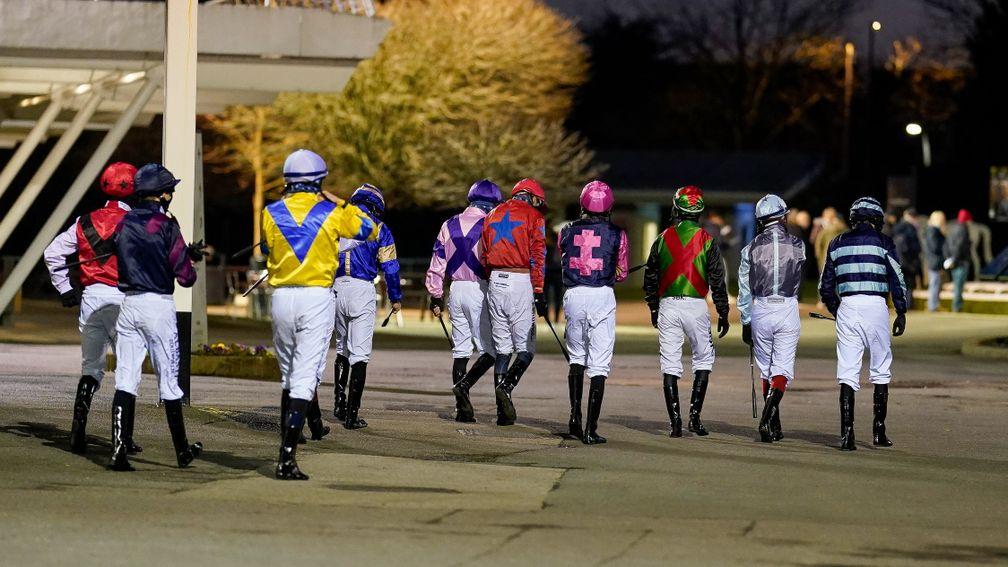
The PJA site shows guide intakes of between 1,500 and 1,800 calories per day, which, although much lower than the NHS average [2,500 per day for men and 2,000 per day for women], is deemed sufficient for maintaining weight healthily.
"We measured jockeys' energy expenditure and on average Flat jockeys were burning 2,500 calories a day even with six rides a day," said Dr Wilson.
"We had to overcome the myth that jockeys were burning loads of energy because they were finishing races knackered. Yes, they're flat out for say 35-45 seconds over two or three furlongs, but the energy expenditure only equates to around 60 calories per ride. They're not playing football for 90 minutes or running a marathon, so by taking in 1,800 calories a day, they're going to have a deficit of 700 calories."
The saunas on racecourses closed due to Covid have been shut permanently and in spring 2022 the minimum riding weight went up to 8st 2lb on the Flat and 10st 2lb over jumps.
On the Flat, that is still around the average weight of a boy aged 14 to 15 and recent research has found the weight of the average Flat jockey is 56kg (around 8st 11lb) and a jump jockey is 65kg (around 10st 3lb).
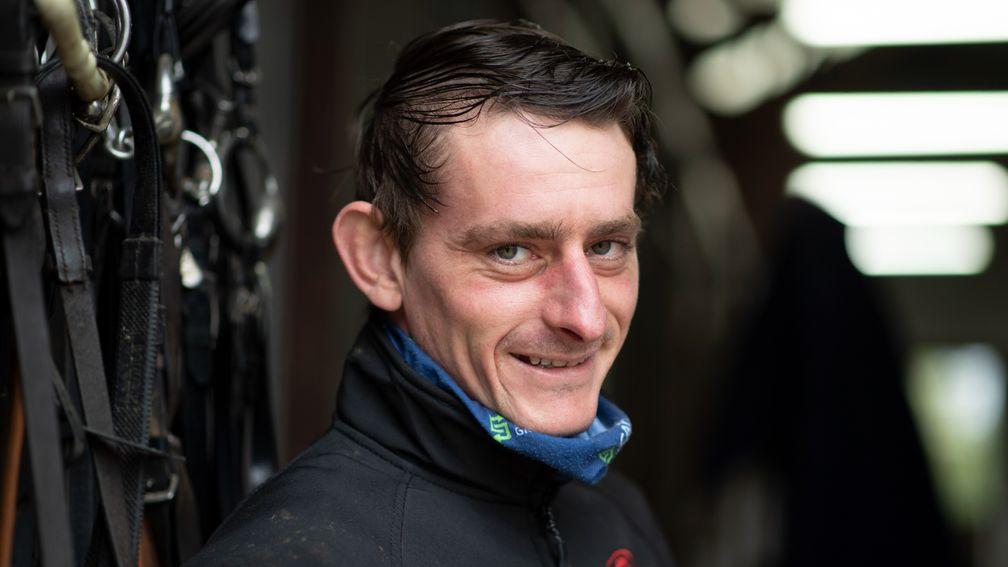
At 5ft 11in, Adam Kirby is one of the tallest jockeys across both codes and rides at a minimum weight of 9st on the Flat. The Derby-winning jockey, 33, has had a prolonged battle with the scales and admits it has taken its toll.
"It's mental torture," he said. "It's every day and it's hours and hours of work, which is something no-one seems to grasp. We're left to it and it's something we have to deal with."
A similar struggle pushed jump jockey Ryan Mania over the edge as he retired not long after winning the 2013 Grand National, citing the ongoing turmoil of having to make weight.
"The worst part of my diet was breakfast consisting of Red Bull and chocolate – that was a very bad start to the day," Mania said. "I'd have some form of meal at night, but it was never very nutritious."
A change of approach
Mania returned to the saddle following a five-year absence with a new approach to diet and fitness through the help of a sports dietician, which underpinned his successful comeback.
He says: "Now each day I have three 500-calorie meals and a 200-calorie snack. I'll have a bowl of Weetabix or porridge for breakfast, a baked potato with tuna or a chicken wrap for lunch and chilli con carne or chicken breast with veg for dinner. I'll have a protein bar as a snack and drink at least one litre of water plus tea and coffee.
"The food is cooked very healthily and it's all about keeping calories to a minimum and combining it with a good bit of exercise, without killing yourself. I'm not a robot, though, and every two weeks I'll have a cheat night where I'll have a glass of wine and chocolate as you need that downtime."
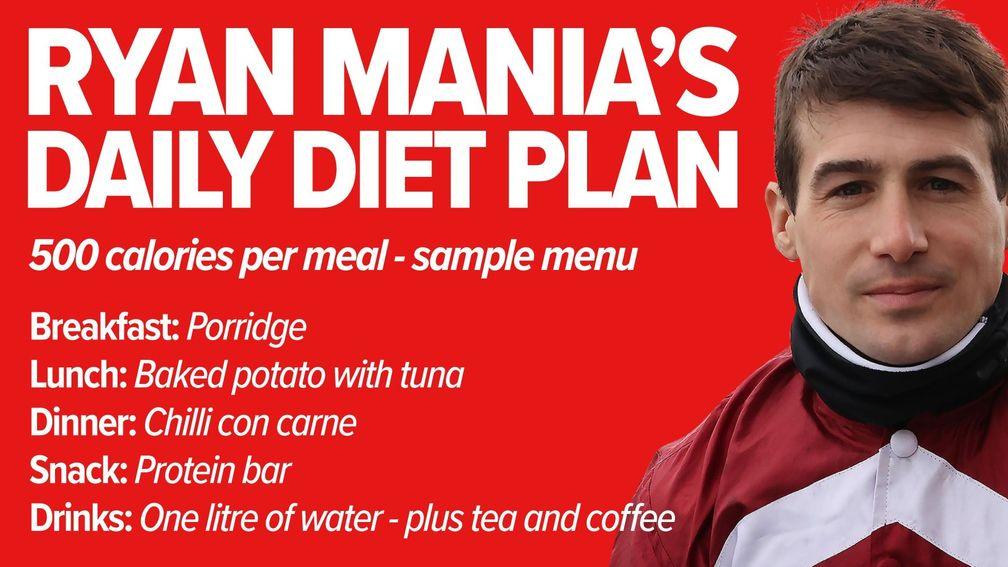
Mania, who rides at 10st 4lb, has noticed the change in diet has given him more energy to deal with the demands placed on all aspects of a jockey's life.
"I was a weedy jockey before and I've become a professional athlete," he says. "It's nice to take it seriously and fuel your body for what it's doing. You feel healthier and stronger and think a lot quicker and better. You're less grumpy and tired.
"If we're going to be at our best and cope with the daily struggle we have, it's very important we're doing the right fitness and eating the right things."
Read these next:
The prizefighters: which racehorses have earned the most money?
Racing's most expensive flops, including a $10m buy who was 'no bloody good'

Sign up to receive On The Nose, our essential daily newsletter, from the Racing Post. Your unmissable morning feed, direct to your email inbox every morning.
Published on 26 June 2022inSeries
Last updated 18:05, 28 June 2022
- We believed Dancing Brave could fly - and then he took off to prove it
- 'Don't wind up bookmakers - you might feel clever but your accounts won't last'
- 'There wouldn't be a day I don't think about those boys and their families'
- 'You want a bit of noise, a bit of life - and you have to be fair to punters'
- 'I take flak and it frustrates me - but I'm not going to wreck another horse'
- We believed Dancing Brave could fly - and then he took off to prove it
- 'Don't wind up bookmakers - you might feel clever but your accounts won't last'
- 'There wouldn't be a day I don't think about those boys and their families'
- 'You want a bit of noise, a bit of life - and you have to be fair to punters'
- 'I take flak and it frustrates me - but I'm not going to wreck another horse'